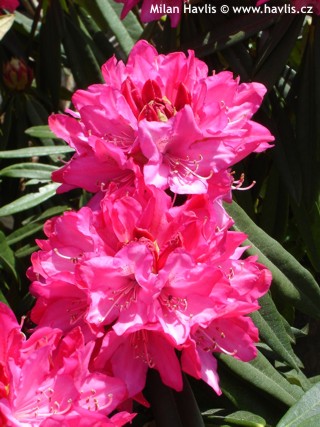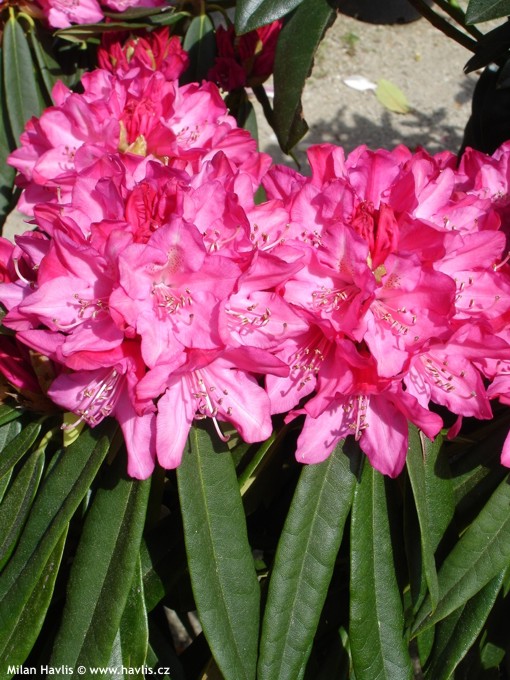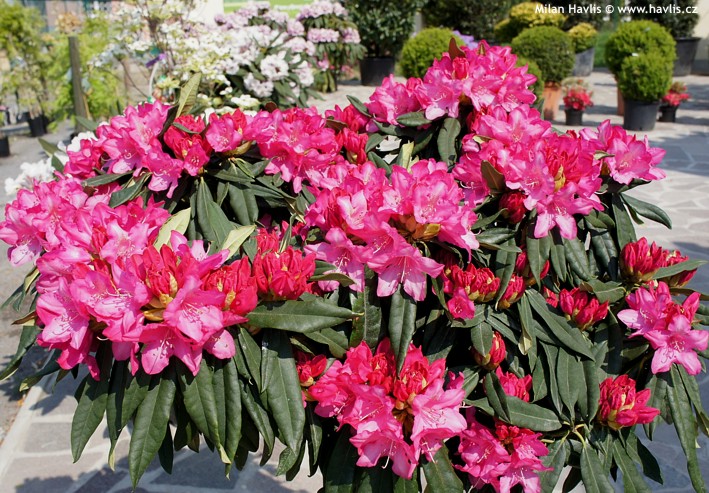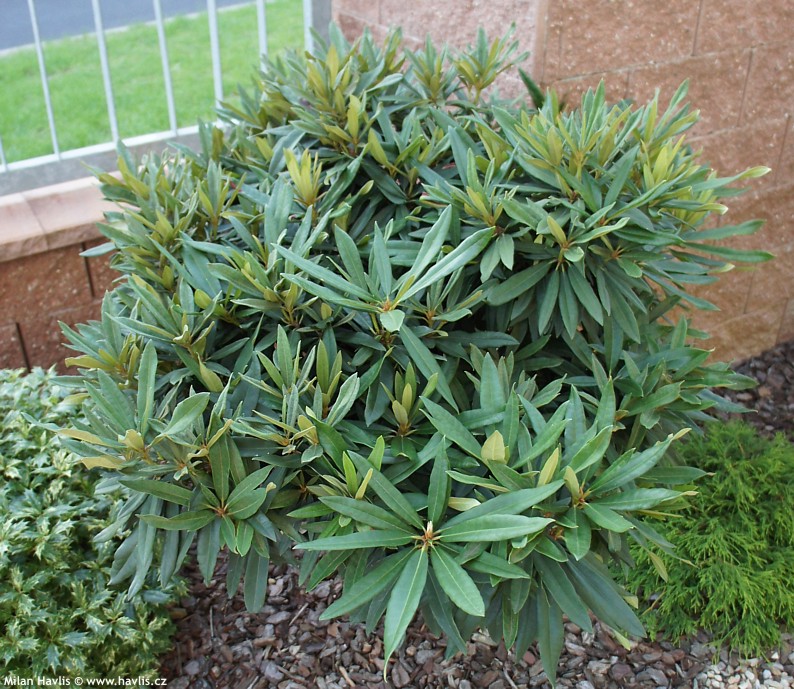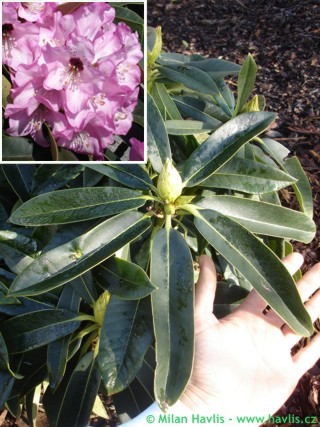Rhododendron makinoi 'ROSA PERLE' Makino rhododendron
size/type
medium-sized shrub,medium-sized shrub
usual height
0,5-1,3m
usual width
1-1,8m
leaves
evergreen broadleaf
colour of leaves
flowers
showy
colour of flowers
blooming time
May-May
location
full to partial sun
soil type
acidic (peaty) to neutral
soil moisture requirements
evenly moist but well-drained
USDA zone (lowest)
5b (down to -27°C)
winter protection
for zone 5+6

for zone 7

categorized
Rhododendron
Makino rhododendron originates in Honshu, Japan, where it grows in the mountains at an altitude of 200-700 m asl. Until recently, it was classified as a yakushimanum subspecies but is now considered a unique species. It was named in honour of the Japanese botanist T. Makinoi who was the first to describe it in the early 20th century. The rhododendron possibly has the narrowest leaves among all evergreen species and is renowned for its compact and low growth, as well as its good tolerance of full sun.Description of the plant:
Rosa Perle is a true gem. It is a Makino rhododendron which even before it begins to bloom, captivates you with its narrow leaves up to 17 cm long, which, unlike other makinoi species, are not curled at margins but are perfectly flat. They are dark green and only slightly glossy. Newly emerging leaves have a striking silver-gray coating that protects them from drying out under intense sun. This is not a disease and should not be rubbed off. The flowers are bright deep pink, broadly bell-shaped, very open, and compared to many large-flowered rhododendrons they appear more delicate. It blooms abundantly and regularly from late April till mid-May. The shrub is compact and dense, rather mounding.In good, constantly moist soil, it can tolerate full sun all day. For better appearance, it is recommended to carefully deadhead spent flowers after flowering. The roots are shallow, fibrous and fine, and continue to spread horizontally just under the surface, seeking nutrients, so it should never be planted too deep. Rhododendrons like moisture but cannot stand in waterlogged soil – the soil must be well-drained, acidic, nutrient-rich, cool, and constantly moist. The ideal mixture for the roots is peat mixed with light, lime-free garden soil, topped with old leaves or fine bark. You can feed it with special rhododendron or heather plant fertilizers. Hardy to at least -27 °C. (USDA zone 5).
Last update 07-02-2009; 15-02-2025.
QUICK PRICE OVERVIEW
CURRENTLY SOLD OUT
WANT TO TRY A SIMILAR PLANT?












